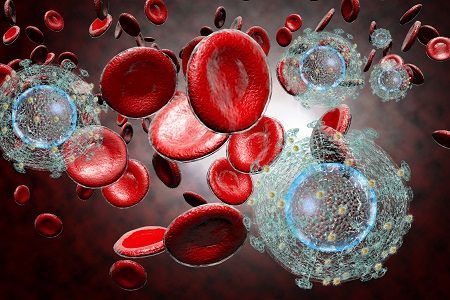The Common Cold Virus Is Helping Researchers Develop an HIV Vaccine
Combining the common cold virus and a DNA-based vaccine revs up the immune system to fight the human immunodeficiency virus (HIV), according to a team of researchers from the University of Adelaide in South Australia.

Combining the common cold virus and a DNA-based vaccine revs up the immune system to fight the human immunodeficiency virus (HIV), according to a team of researchers from the University of Adelaide in South Australia.
With antiretroviral therapy (ART) reducing viral loads down to undetectable levels, researchers are focusing on developing an HIV vaccine now more than ever. Branka Grubor-Bauk, PhD, and colleagues are the latest to report their findings on the matter by concentrating on a primary route of HIV transmission — sexual activity.
“A possible reason why previous HIV vaccine trials have not been successful is because of this lack of frontline protection,” Grubor-Bauk said in a news release.
The team created a cocktail of live recombinant human rhinoviruses (rHRVs) and DNA vaccine. They altered the common cold virus, rhinovirus, to include HIV proteins, which was then administered inside the nose of mice. The animals also received a DNA-based vaccine. This simultaneous delivery sparked a specific immune system response.
“Importantly, this vaccine approach encompasses two different arms of the immune system: white blood cells that attack the HIV virus, and specific antibodies recognize and shut down HIV-positive cells,” Grubor-Bauk explained.
An element of HIV, known as Tat, helps the virus replicate quickly. As described in Scientific Reports, the combination vaccine inhibits Tat, which stops HIV from replicating. The cocktail preventive treatment proved to work well in mice, as it considerably reduced infection.
Grubor-Bauk didn’t specify where the research goes from here. But although this is only the first step in what would be a long process of testing, the findings offer hope that a frontline vaccine against HIV is possible.
Related Coverage:
Researchers Map Best Regimens for HIV
One Overlooked Factor Drives African Americans’ Vulnerability to HIV